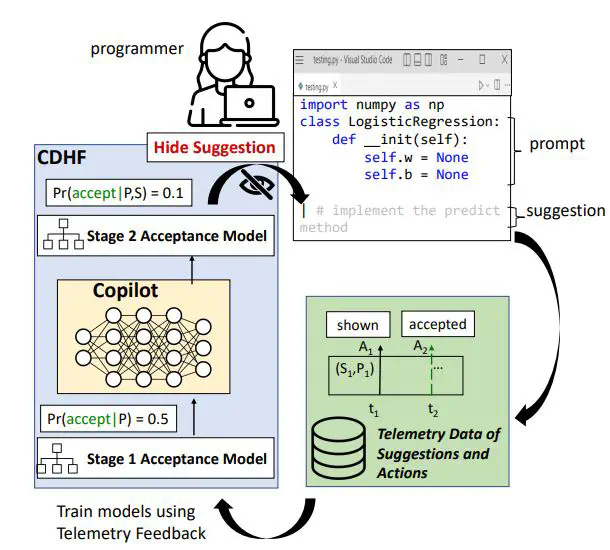
Abstract
AI powered code-recommendation systems, such as Copilot and CodeWhisperer, provide code suggestions inside a programmer’s environment (e.g., an IDE) with the aim to improve their productivity. Since, in these scenarios, programmers accept and reject suggestions, ideally, such a system should use this feedback in furtherance of this goal. In this work, we leverage prior data of programmers interacting with GitHub Copilot, a system used by millions of programmers, to develop interventions that can save programmer time. We propose a utility theory framework, which models this interaction with programmers and decides which suggestions to display. Our framework Conditional suggestion Display from Human Feedback (CDHF), relies on a cascade of models that predict suggestion acceptance to selectively hide suggestions reducing both latency and programmer verification time. Using data from 535 programmers, we perform a retrospective evaluation of CDHF and show that we can avoid displaying a significant fraction of suggestions that would have been rejected doing so without total knowledge of the suggestions themselves. We further demonstrate the importance of incorporating the programmer’s latent unobserved state in deciding when to display suggestions through ablations on user study data. Finally, we showcase that using suggestion acceptance as a reward signal to know which suggestions to display leads to reduced quality suggestions indicating an unexpected pitfall.